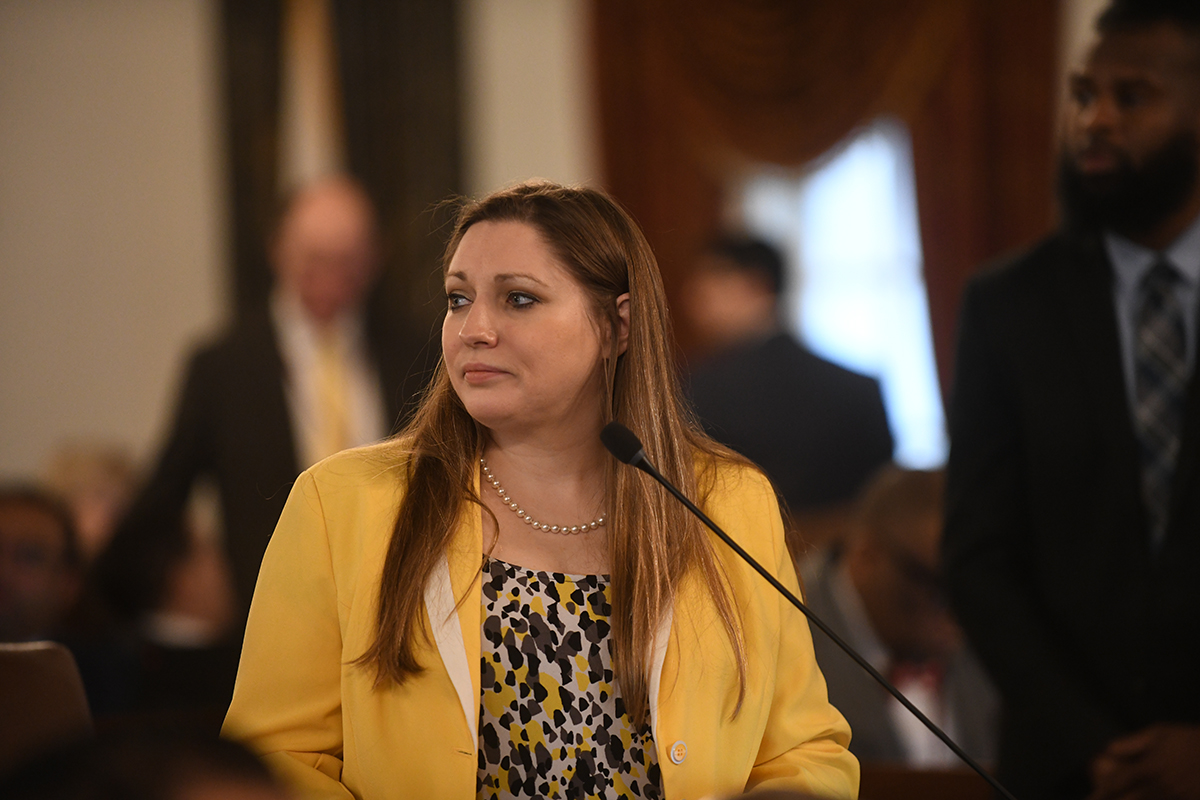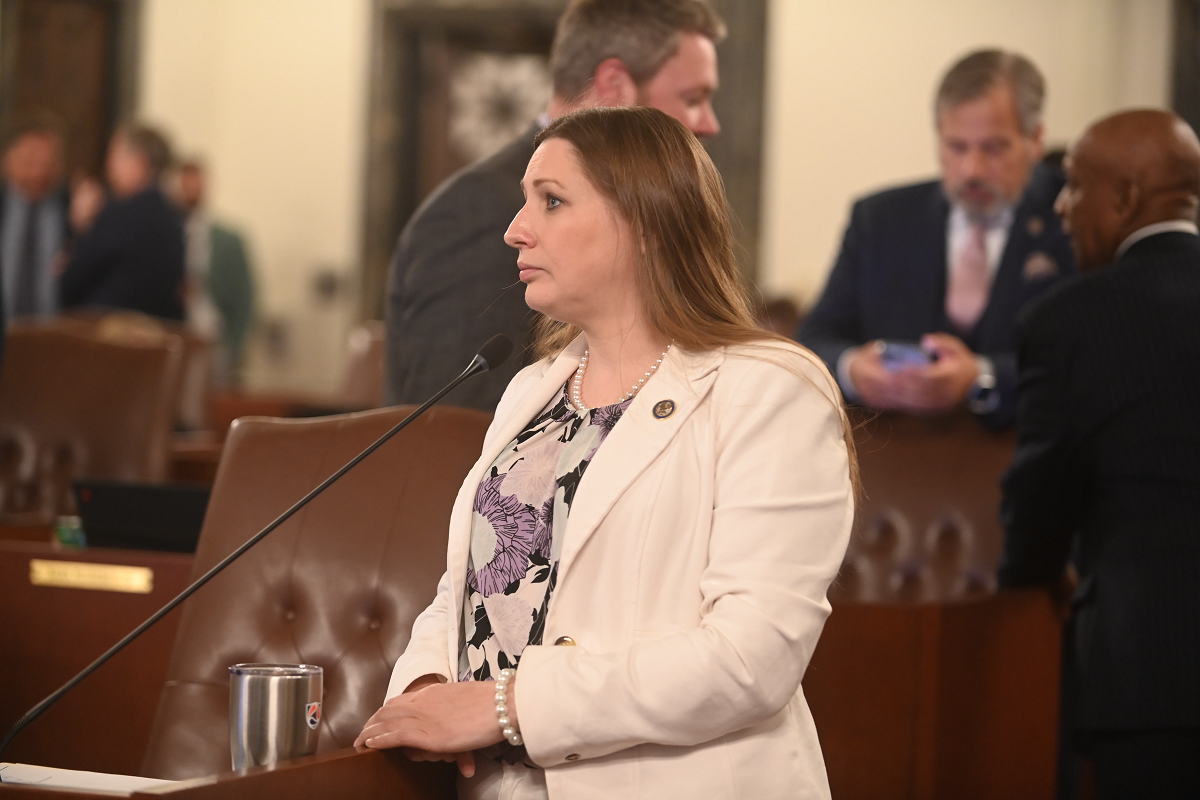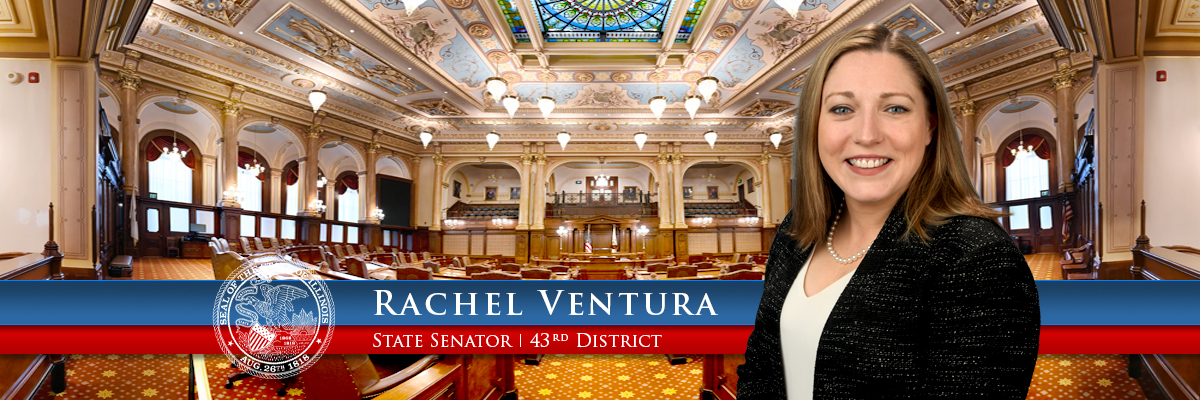- Details

JOLIET – Following IDOT’s decision to allow Route 53 access for the three warehouses that NorthPoint has built, State Senator Rachel Ventura released the following statement:
“I have continually echoed the concerns of residents on the NorthPoint Development. I have strongly been against this project due to environmental and health concerns, as well as the significant increased traffic that would come to an area that has already been burdened with increased trucking over the years.
“Following a meeting with IDOT's engineers to better understand their decision to allow permanent access, I wanted to provide transparency to residents that at this time this will cease the expansion of NorthPoint, halting their plans to expand beyond the three currently built structures. There will be no additional development east or west of IL 53 unless a connection to Millsdale Road is reestablished and then they would cease using IL Route 53. They would have to apply for a new permit and go through the process again for Millsdale.
“In addition to expansion denial, IDOT will closely monitor traffic increased by this decision and will take into account if it harms residents and daily commuters. While this is ultimately not what I advocated for or envisioned, I am confident that denying NorthPoint to expand is a win for our area.
“Furthermore, if NorthPoint does not adhere to these conditions, access would be revoked and they would have to pay to return the area back to the condition it was before access for these entrances was granted.”
- Details
JOLIET – Following the announcement of a new quantum computing facility in the far south side of Chicago at the former U.S. Steel South Works plant on Lake Michigan, State Senator Rachel Ventura released a statement:
“One of my priorities as a legislator is to help bring economic growth, stability and good paying jobs to our region.
“While I'm disappointed that Lockport was not chosen for the quantum computing facility site, I believe our district is ideal for future technological advances. The Illinois Department of Commerce & Economic Opportunity and I are committed to bringing economic development to the 43rd district.
“I have been in regular discussions with them on how to make this a reality and look forward to seeing good paying jobs and businesses brought to the 43rd district.”
- Details
JOLIET – Following the announcement of Ascension selling St. Joseph’s Hospital to Prime Health Care – a for-profit California based company – State Senator Rachel Ventura released the following statement:
“After hearing the announcement that Ascension will be switching to an out-of-state company, I immediately thought of all the nurses and medical staff that I have been on the picket line with for months.
“They are our friends, family, and the people who sacrifice everything to keep us safe and healthy.
“I remain steadfast in my support of all the staff at St. Joe’s. I have been in contact with Ascension to plan a town hall in order to provide answers to the community. When we have finalized more details, I intend to invite hospital employees and the community to attend.
“Ascension has assured me that all staff positions will remain during the transition. Our nurses are our lifeline and I will never stop fighting to ensure their voices are heard and that they are treated fairly. Day in and day out they fight for us – we should all fight for them too.”
- Details

BOLINGBROOK – Following Illinois American Water’s $152 million rate-hike request to the Illinois Commerce Commission, State Senator Rachel Ventura (D-Joliet) released the following statement prior to joining the Citizens Utility Board on Monday evening to urge the ICC to reject the requested rate hike:
“Water is essential to all life. We cannot allow profits to be put over people. I believe water should never be privatized for this reason.
“The ICC has an opportunity to protect Bolingbrook residents’ access to water today – by cutting the increases drastically, getting rid of the QIP surcharge on water bills, and giving these residents a voice. Residents should not have to be burdened with paying “executive bonuses” for the company’s shareholders.
“I will continue to work with my colleagues to protect access to clean, affordable drinking water.”
More Articles …
Page 29 of 59







